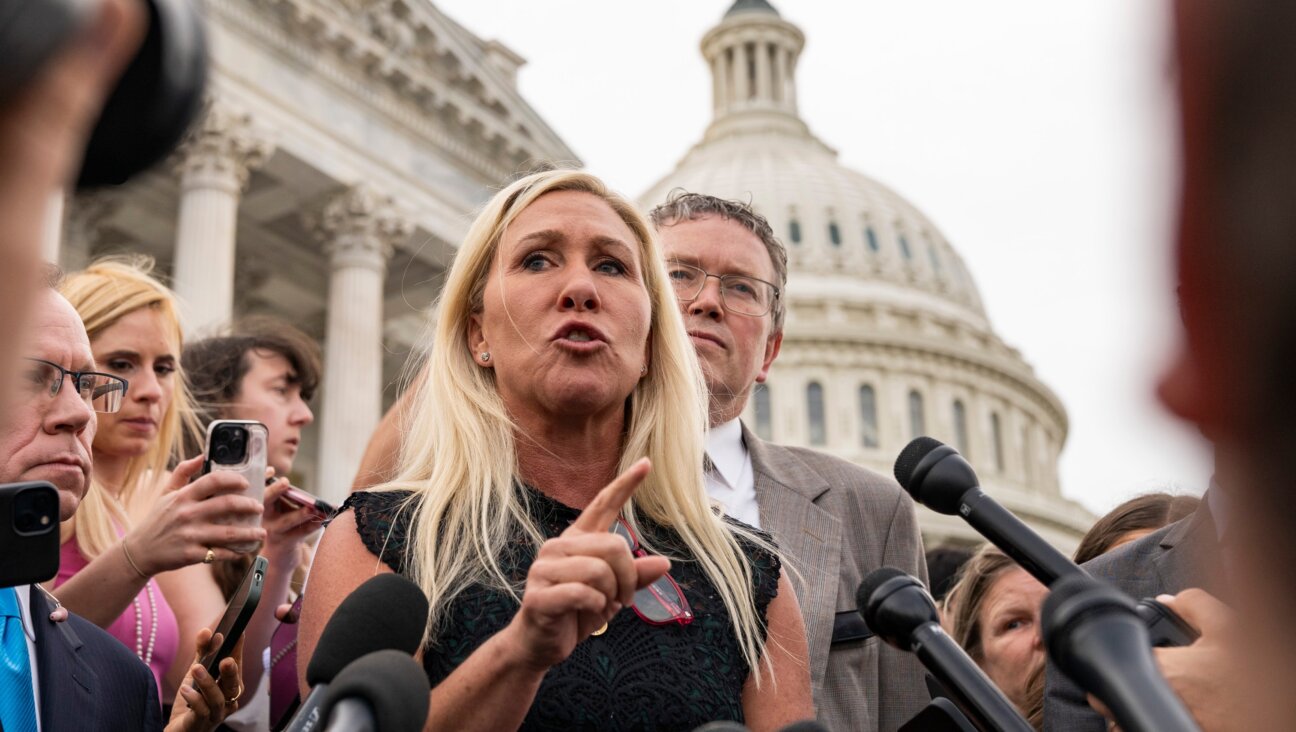Jenji Kohan to debut a ‘Social Distance’ anthology for Netflix

Jenji Kohan Image by Getty/Dia Dipasupil/Staff
We may not have to wait for the end of the COVID-19 era to get an anthology series about it.
Jenji Kohan, creator of “Orange Is the New Black” is developing a show called “Social Distance,” Deadline reported. The Netflix offering will be produced virtually for reasons of public health and will present narratives delving into the dilemmas of the coronavirus pandemic. Her OITNB collaborator Hilary Weisman Graham will serve as showrunner. A release date has yet to be announced.
“Our job as storytellers is to reflect reality, and in this new, bizarre, bewildering reality we are all experiencing, we feel passionate about finding connection as we all remain at a distance,” Kohan and her fellow producers told Deadline. “The experience of social distancing is currently universal, but no individual story is the same. Through a broad spectrum of tales and moments, some seismic and some mundane, we hope to capture a moment in time. And we hope that ‘Social Distance’ will help people feel closer to one another.”
While an admirable endeavor for a largely production-stalled entertainment industry, one wonders if this is the content we need right now.
It’s tough to say, with such scanty plot details, if the show will click with viewers. But judging by the breakout successes of the past two months, works of unique escapism — the redneck insanity of “Tiger King,” the fish-out-of-water workings of “Unorthodox” or the ode to the Chicago Bulls that is “The Last Dance” (alas, no NBA this year) — seem to be what the public craves. Given those portals to other, more expansive worlds do we really want to relive all of our Zoom meetings?
Still, should “Social Distance” hit our screens before we’re past this troubling moment, it will come in with an advantage: We’re not doing a whole lot else, so we’ll probably give it at least an episode.
PJ Grisar is the Forward’s culture fellow. He can be reached at [email protected].
The Forward is free to read, but it isn’t free to produce

I hope you appreciated this article. Before you go, I’d like to ask you to please support the Forward.
Now more than ever, American Jews need independent news they can trust, with reporting driven by truth, not ideology. We serve you, not any ideological agenda.
At a time when other newsrooms are closing or cutting back, the Forward has removed its paywall and invested additional resources to report on the ground from Israel and around the U.S. on the impact of the war, rising antisemitism and polarized discourse.
This is a great time to support independent Jewish journalism you rely on. Make a gift today!
— Rachel Fishman Feddersen, Publisher and CEO
Support our mission to tell the Jewish story fully and fairly.
Most Popular
- 1

News School Israel trip turns ‘terrifying’ for LA students attacked by Israeli teens
- 2

Culture Cardinals are Catholic, not Jewish — so why do they all wear yarmulkes?
- 3

Fast Forward Why the Antisemitism Awareness Act now has a religious liberty clause to protect ‘Jews killed Jesus’ statements
- 4

Fast Forward Ye debuts ‘Heil Hitler’ music video that includes a sample of a Hitler speech
In Case You Missed It
-

Yiddish קאָנצערט לכּבֿוד דעם ייִדישן שרײַבער און רעדאַקטאָר באָריס סאַנדלערConcert honoring Yiddish writer and editor Boris Sandler
דער בעל־שׂימחה האָט יאָרן לאַנג געדינט ווי דער רעדאַקטאָר פֿונעם ייִדישן פֿאָרווערטס.
-

Fast Forward Trump’s new pick for surgeon general blames the Nazis for pesticides on our food
-

Fast Forward Jewish feud over Trump escalates with open letter in The New York Times
-

Fast Forward First American pope, Leo XIV, studied under a leader in Jewish-Catholic relations
-
Shop the Forward Store
100% of profits support our journalism
Republish This Story
Please read before republishing
We’re happy to make this story available to republish for free, unless it originated with JTA, Haaretz or another publication (as indicated on the article) and as long as you follow our guidelines.
You must comply with the following:
- Credit the Forward
- Retain our pixel
- Preserve our canonical link in Google search
- Add a noindex tag in Google search
See our full guidelines for more information, and this guide for detail about canonical URLs.
To republish, copy the HTML by clicking on the yellow button to the right; it includes our tracking pixel, all paragraph styles and hyperlinks, the author byline and credit to the Forward. It does not include images; to avoid copyright violations, you must add them manually, following our guidelines. Please email us at [email protected], subject line “republish,” with any questions or to let us know what stories you’re picking up.
















